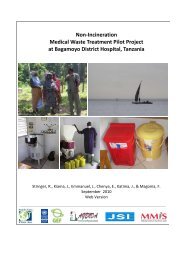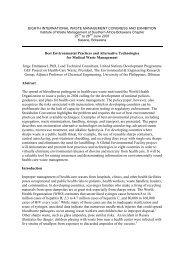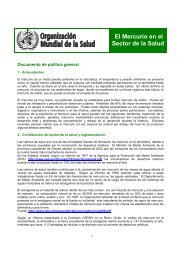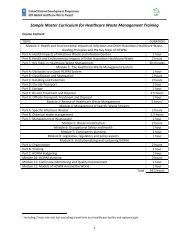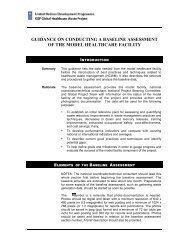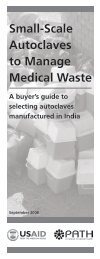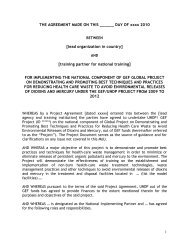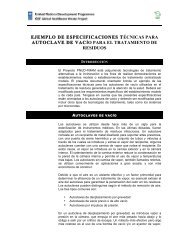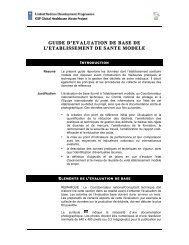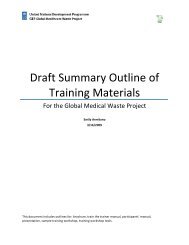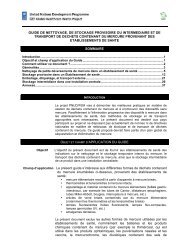Latvia
Latvia
Latvia
Create successful ePaper yourself
Turn your PDF publications into a flip-book with our unique Google optimized e-Paper software.
Health systems in transition<br />
<strong>Latvia</strong><br />
environmental hazards. In addition, the State Fire Inspectorate controls how<br />
institutions comply with requirements to prevent fire hazards.<br />
All health care organizations must be certified in order to qualify for<br />
contracts with the SCHIA for provision of health care services under the<br />
statutory system.<br />
There is a continuous process of development of mandatory requirements for<br />
health care organizations. New requirements for blood services were approved<br />
in 2005 in accordance with EC Directives regarding standards of quality and<br />
safety for the collection, testing, processing, storage and distribution of human<br />
blood and blood components. New mandatory requirements for health care<br />
institutions, including diagnostic facilities and medical laboratories are being<br />
developed.<br />
The Law on “Medical Treatment” (1997) also determines the process of<br />
voluntary certification (accreditation) by use of national and international<br />
quality system standards for assessment of health care institutions. The national<br />
standards are still a subject of discussion among government policy-makers,<br />
health care managers and health care professionals. At the time of writing, one<br />
hospital has certified its quality system in accordance with ISO 9001:2000.<br />
There is a general tendency to use more clinical practice guidelines, which<br />
are usually developed by different associations of health care professionals.<br />
Although some of these are produced on the basis of international guidelines,<br />
as a result of revisions and adaptations to the local context there are some<br />
doubts regarding their resulting quality. There is no formal responsibility for<br />
the development of guidelines; therefore there is no common methodology<br />
or formal mechanism for developing, approving and implementing quality<br />
assessment guidelines. Moreover, whereas there is increasing interest among<br />
health care managers and clinicians in the development of a system of health<br />
care quality assessment by use of appropriate outcome indicators, the majority<br />
of statistical data reflects productivity issues rather than problems related to<br />
quality of care.<br />
The body mainly responsible for overseeing quality of care issues is the<br />
Quality Control Inspectorate for Expert Examination in Health Care and<br />
Ability to Work, under the Ministry of Health. This agency has the right to<br />
apply appropriate penalties to health care providers, including those that<br />
operate without certification. In practice, very few non-certified institutions<br />
are penalized.<br />
There are ongoing discussions about establishing new standards for<br />
accreditation of health care organizations. There is general agreement that the<br />
standards should include most of the quality system elements, clinical processes<br />
measurement and also outcome measurement. The goal is to create a more<br />
113





